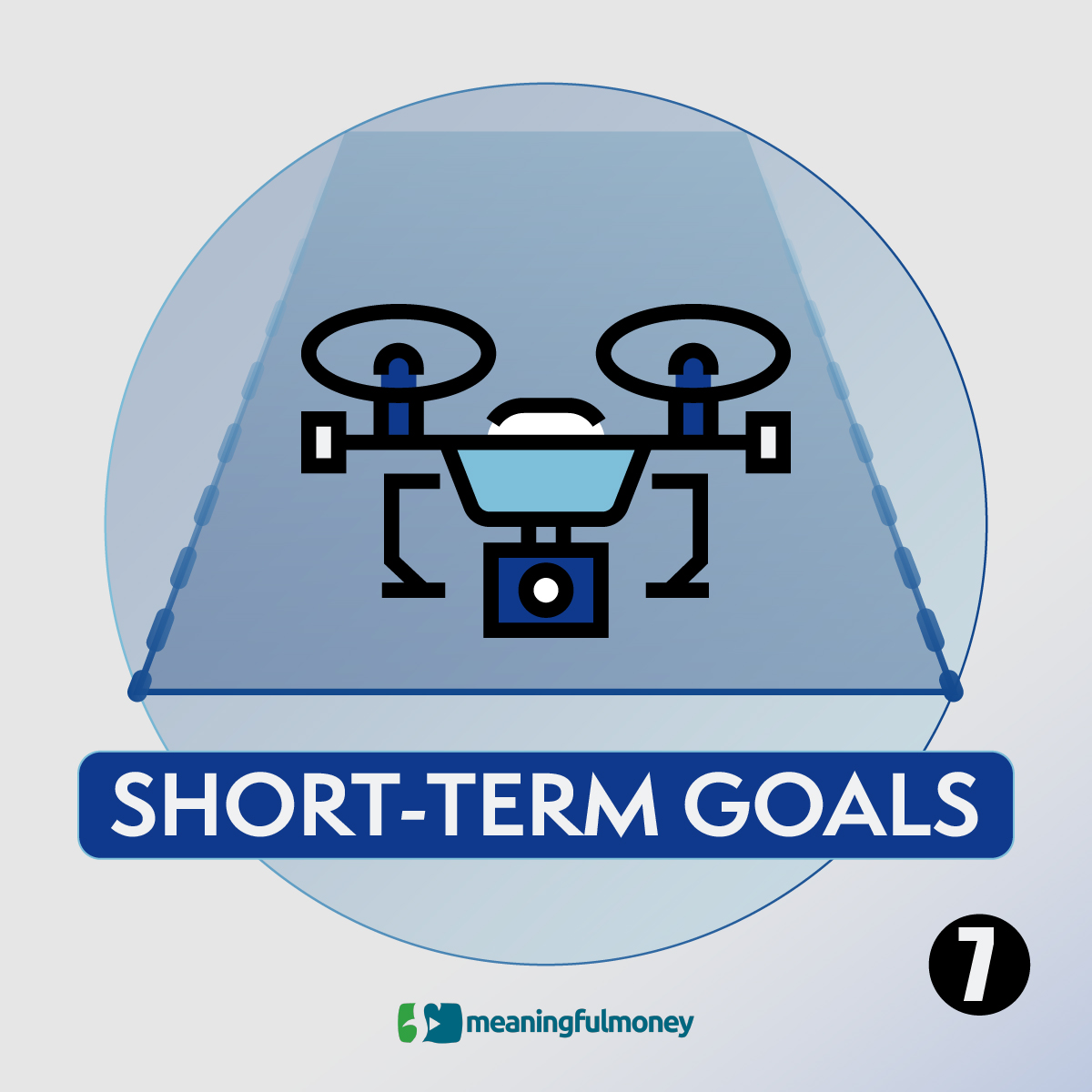Today we start to build on what we’ve talked about so far. We’ve laid the foundation of debt elimination, creating an emergency fund and having the right protection in place. Now we can start looking to the future and set some goals…
Season 25 – Finance OS
- Introduction
- Budgeting
- Emergency fund
- Pension enrolment
- Paying off expensive debts
- Completing the foundation of insurance
- Goals – Part 1
Everything You Need To KNOW- What we’ve achieved so far.
- Built and sustained a budget.
- Created a cash buffer between us and unforeseen events – emergency fund.
- Paid off debt which was making other people richer, not us.
- Taken out insurance which will mean that our goals are not derailed by circumstances outside our control.
- Some thoughts on spending.
- Money should never be disposable, but rather DEPLOYABLE, that is, able to be put to good use.
- Spending now or spending in the future.
- Control over your budget GIVES you this freedom to deploy money how you want.
- Define short-term goals.
Everything You Need To DO- Review your budget and decide on deployment.
Identify the total amount which you can now put to use. Then what proportion should be enjoyed now and what to put to the future.
- Decide on your goals and what they will cost.
Write a list of all the things that you would like to achieve or purchase in the next few years. Don’t worry about prioritising them or anything, just write them down and an approximate cost of each.
- Turn each goal into a monthly payment.
Divide the cost of what you’re looking to achieve into the number of months between now and then. Example: Holiday of £1000 in 9 months’ time is £111 pm.
- Keep the money in cash.
The short timescale means that you should NOT invest this money. The facility for something to rise in value usually comes at the expense of the possibility that it might FALL in value. The last thing you would want is to have worked for months or a couple of years towards a goal only to see the money you have saved be worth 20% less than you need just at the time you are due to spend it.
- Review regularly.
Every few months, it’s worth assessing how you’re doing towards your goals, checking the amounts are right and adjusting as necessary.
- Control impulse spending.
Some tips for controlling impulse spending:- Remove the impulse part of it by delaying hitting the buy button for 24 or 48 hours. Often by then, the ‘need’ for the item has gone.
- Ask if the item will add value or joy to your life – do you NEED it, or just want it?
- Have you bought something like this before? How did you feel afterwards?
- Where are you going to keep the thing, if it’s a physical object.
- What is the time-cost of this thing?
- What could this money turn into if you saved it instead?
- Could this money be used for an experience rather than a thing?
- What we’ve achieved so far.
- Goals – Part 2
- Approaching retirement
- At retirement
- Retirement early years – The danger zone
- Retirement reviews
- Later life
- Question and answer session
At the end of the season we’d like to tie things off with a Q&A session, answering the key questions that you ask throughout. hello@meaningfulmoney.tv SUBJECT LINE: Season 25 Question or similar. We’ll sort them and try to answer as many as we can, but likely we’ll pull out themes and deal with them. If the outline we’ve gone over today raises any questions, get them in now – we can also answer them as we go along. If we get tons of Qs we can always do two Q&A sessions.





